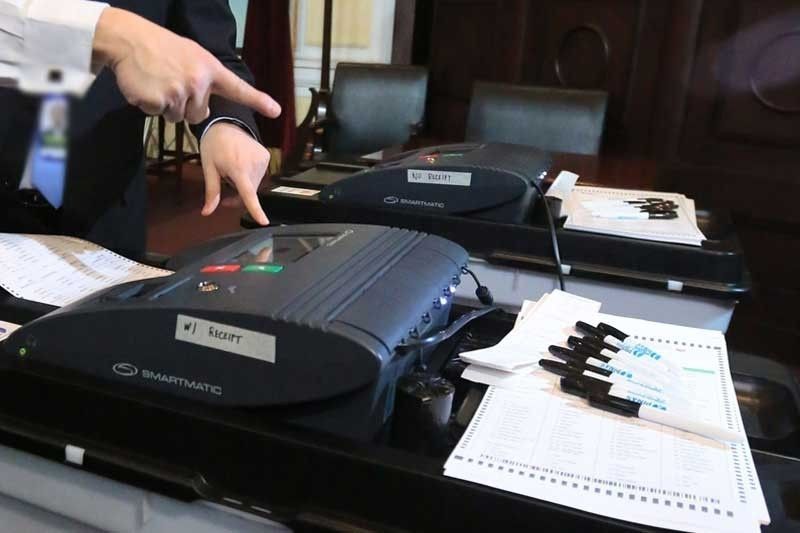Sotto warns vs poll result tampering

MANILA, Philippines — The Commission on Elections (Comelec) and its automated election system provider, Smartmatic, have made a “very dangerous” change in their protocols, which apparently prevents the tracing of the actual source of transmission of votes from precincts that can potentially be used to tamper with the results, Senate President Vicente Sotto III warned yesterday.
Sotto, who is running for vice president in the May 9 elections, said this information was reported by the Senate’s IT representative to the Joint Congressional Oversight Committee on the Automated Election System (JCOC-AES) who found out that Smartmatic is not only contracted to supply the vote counting machines (VCMs) but also handle the transmission of results.
He said IT expert and lawyer Ivan Uy is part of the group reviewing the source code of the program that will run the AES, through which thousands of VCMs can be traced remotely through their IP addresses as done in the past.
“That’s a very dangerous thing (change in protocols) that they’ve done. I think we have to be transparent on this particular issue. Smartmatic, Comelec, we have to look at this very closely. It’s very dangerous,” Sotto said in a press conference with his running mate for president, Sen. Panfilo Lacson, and their senatorial candidates in Antipolo City.
“Once we cannot track the IP address, we don’t know where, what VCM (the result) is coming from, especially for the national level,” said the Senate President. “So that means aside from the VCMs from different precincts, it’s possible there are other VCMs that will transmit (results) – it may be from another country, another place or even hotels in Metro Manila.”
The disclosure came as Comelec Chairman Saidamen Pangarungan last week told a Senate inquiry that the poll body has withheld a tranche of P90 million in payment to Smartmatic over the still unresolved data and security breach in the company.
Comelec officials, however, said the breach did not affect the security of the poll body’s systems.
Sotto said the change was Smartmatic’s move to have the transmission upgraded from 3G in previous polls, to 4G or 5G.
While it is faster and the “technology is going to be improved, the transparency has been forgotten,” Sotto said.
Lacson said he worried because when Uy raised the matter with Comelec officials, they replied that they would have to consult with the Department of Information and Communications Technology.
The tandem said they have no problem with technological improvements that would increase the speed of transmission as long as it would not come at the expense of transparency.
Guanzon vouches for AES
Despite the security breach of Smartmatic’s online infrastructure, former Comelec commissioner Rowena Guanzon yesterday vouched for the credibility of its automated voting system, adding that the public must instead be wary of massive vote-buying.
Speaking at the virtual forum hosted by Kamuning Bakery in Quezon City yesterday, Guanzon expressed confidence in the integrity of the country’s AES for May 9.
“All the [vote counting] machines are tested and every ballot is tested by feeding it to the machines. That was how the Comelec found out that several ballots were defective and they reprinted them,” she said.
“Don’t worry about double ballots because the vote-counting machine will automatically reject the source code of the second ballot,” she added.
Guanzon pointed out that it has already been proven in past elections that the VCMs of Smartmatic were “reliable” with an accuracy rate of 99.7 percent, as confirmed by Catholic church-affiliated poll watchdog Parish Pastoral Council for Responsible Voting (PPCRV).
“The automated election system and the Smartmatic machines have an accuracy rate of 99.7 percent. It’s very reliable and so hard to tamper with, particularly the transmission of election results,” the former election official said. – Elizabeth Marcelo, Janvic Mateo
- Latest
- Trending





























